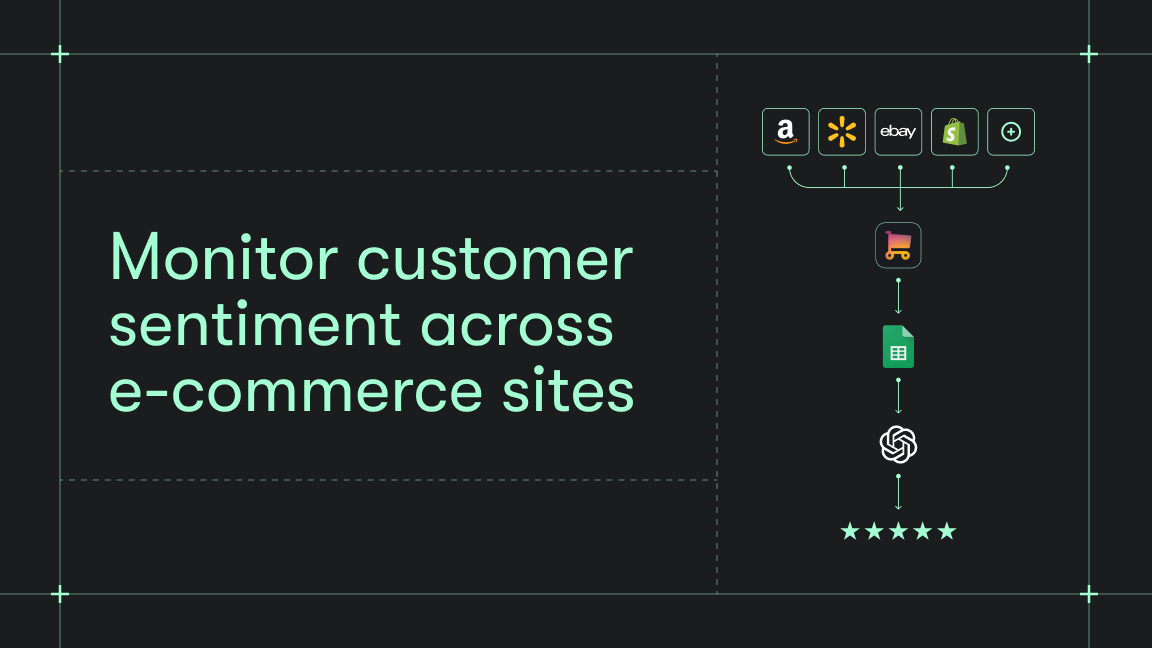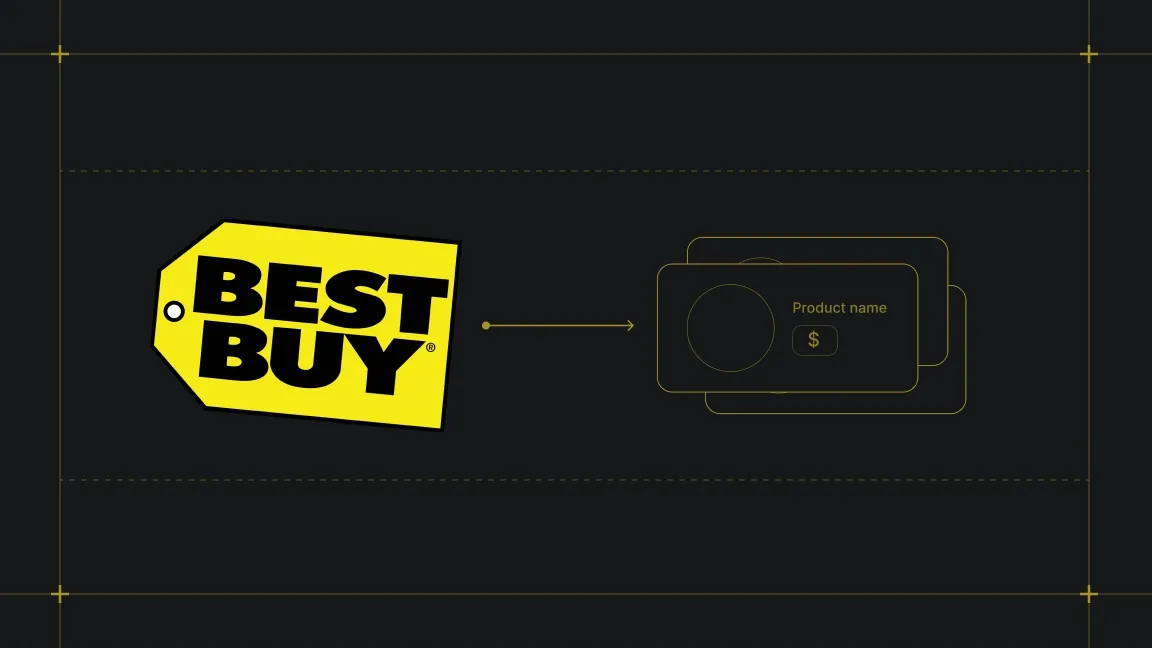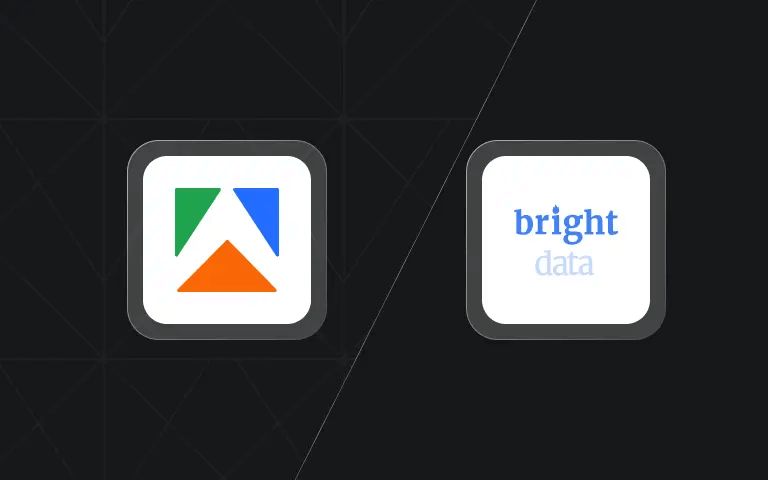If you’re a small or medium business owner trying to monitor product prices on Walmart, you’ve probably discovered that it’s not a simple matter of using an API. Walmart doesn’t provide public access to real-time price data - its available APIs only offer limited snapshots for non-marketplace items.
On top of that, Walmart’s website structure poses several technical challenges:
- Infinite scrolling instead of standard pagination,
- Dynamic JavaScript-rendered content,
- Strong anti-bot protection powered by Akamai Bot Manager with AI-driven behavioral analysis, device fingerprinting, and frequent CAPTCHA checks.
To track Walmart prices efficiently, you don’t need to invest in costly enterprise-grade monitoring platforms or buy data from third-party providers. With the right scraping tool, you can automate the process yourself - with full control over your data.
You need a scraper that can bypass technical barriers, accurately extract prices and product variants, detect item IDs, and export structured data (mapped into a clean schema e.g. id, price, currency, or timestamp) for your reports. The tool should also be able to schedule automated runs, so that you can spend your time on pricing strategy instead of data collection.
We’ll show you how to track Walmart prices with Apify’s E-commerce Scraping Tool and explore three alternative Walmart-specific solutions you can use to build a reliable data workflow.
Walmart price tracking with E-commerce Scraping Tool
Apify’s E-commerce Scraping Tool is a specialized scraper available on Apify Store, a home to 8,000+ automation solutions, called Actors. Actors can be configured without any code and integrate easily with third-party apps or other Actors on the platform.

E-commerce Scraping Tool is able to extract prices from Walmart and automatically send the data directly to your Google Drive for further analysis.
To fully automate the process, you can set up a simple workflow between E-commerce Scraping Tool and Google Drive - directly within the Apify platform. Once you trigger a price scraping run, the output will be saved automatically to Google Sheets, and with the right scheduling configuration, you will get fresh data daily, weekly, or at any interval you choose - without any manual input.
How to track Walmart prices with Apify
Step 1: Integration with GDrive
Before we start scraping Walmart, let’s make sure the data flow is properly configured. Go to the Integrations tab, start typing GDrive, and select the Upload results to GDrive integration.

Give the integration a unique name. In our example, we’ll use Apply Watches - price tracking. Click Save to continue and connect your Google account. If you’re using your Google account with Apify Console, your email address will appear in the list of available accounts to select.

Since we want the data to be sent to the spreadsheet once the scraper finishes running, we’ll select Run succeeded as our starting point.

Select the format of the Google Drive file the Apify integration will create, and click Save. The workflow is ready - from now on, every time you run a scraping session, a new file with the scraped results will be created in your Google Drive, ready for analysis and comparison over time.
Step 2: Configure the scraper and run it
Time to set up the scraper. Head to the Input tab and paste the Walmart product page URLs you want to extract data from and track prices for.

The tool also includes an AI analysis feature. You can use any prompt that will make your scraping session even more informative - such as summarizing key product features or highlighting discounted items.

Click Save & Start, wait for the scraper to finish running, and that’s it: You can check your Google Drive for a newly created spreadsheet with pricing data. Each time you execute the scraper, it will automatically generate a new file with fresh data, ready for analysis.

Learn how to collect data from multiple e-commerce websites and get data in JSON, CSV, or Excel formats
Alternative solutions to consider
Looking for something slightly different? Apify Store offers Walmart-specific scrapers for product details, prices, and reviews. They all inherit the same core features specific to the Apify platform:
- Built-in proxy management
- Anti-bot evasion support
- Integrated storage with structured exports in CSV, Excel, or JSON formats
- Input configuration schema with standardized parameters (URLs, keywords, limits, etc.).
- REST API endpoint for starting, stopping, and retrieving data
All Walmart scrapers on Apify Store share a unified infrastructure. The key differences lie in their focus and output.
Walmart Fast Product Scraper
A scraper optimized for speed, designed to quickly extract product information from search listing pages on walmart.com or walmart.ca.

Key features:
- Built for category and search results, making it ideal for quick tracking of prices across a large number of products.
- Scrapes essential data such as prices, descriptions, ratings, and seller names.
Limitations:
- Provides less depth compared to full product detail scrapers.
- Does not support input based on individual product URLs.
Walmart Data Extractor
Designed specifically for Walmart, built to handle detailed product information and pricing data.

Key features:
- Extracts comprehensive product details, including images, brand names, prices, variations, and more.
- Supports filters, categories, and product lists for targeted scraping.
- Extracts prices based on location - You can use a U.S. postal code to compare how prices vary across local Walmart stores.
Limitations:
- Walmart-specific. You can’t compare prices on other platforms.
Walmart Product Detail Scraper
Designed to extract complete product information from walmart.com, walmart.ca, and walmart.com.mx, capturing everything available on full product detail pages.

Key features:
- Scrapes detailed product data, including prices, descriptions, and ratings.
- Accepts URLs from category, search, or product detail pages as input.
- Built for depth - captures per-variant stock status, attributes, and images for each variant.
Limitations:
- Walmart-specific - it doesn’t support price comparison across other e-commerce platforms.
Choose the best solution for your use case
Here’s how all the Walmart price scraping tools compare:
| Tool | Best for | Pricing |
|---|---|---|
| E-commerce Scraping Tool | Monitoring Walmart + other stores; building unified datasets; flexibility | Paid per event: $0.50/ 1,000 listings + additional features fees |
| Walmart Fast Product Scraper | Broad category monitoring, new product discovery on Walmart | Paid per event: $5.00 / 1,000 listings + $0.0001 Actor start flat fee |
| Walmart Data Extractor | Deep Walmart tracking per ZIP code location | Rental fee of $30.00/month + usage |
| Walmart Product Detail Scraper | Frequent tracking of known items, variant details | Paid per event: $10.00 / 1,000 + $0.0001 Actor start flat fee |
Key takeaways
With Apify scrapers, you can extract Walmart pricing data code-free and build automated workflows without worrying about proxies, blocking, or maintenance.
- If you need cross-store monitoring, start with E-commerce Scraping Tool.
- If you need detailed Walmart data, use Walmart Scraper or Walmart Product Detail Scraper.
- If you want speed over depth, go with Walmart Fast Product Scraper.







